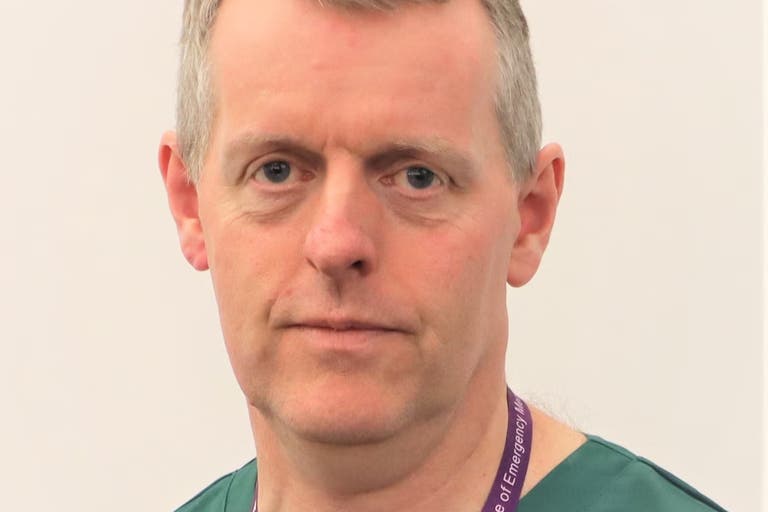The Head of the UK’s emergency medicine body has accused the government of failing the most vulnerable patients, as new data suggests more than 16,000 people may have died last year due to excessive delays in A&E departments.
Dr Adrian Boyle, president of the Royal College of Emergency Medicine (RCEM), said older and severely ill patients are being overlooked in favour of quicker wins, such as treating minor injuries, to meet relaxed performance targets.
RCEM analysis indicates that in 2024, up to 320 people each week died due to prolonged waits for hospital beds. These figures were derived using a major 2021 study, which linked long emergency department stays with higher mortality rates.
The analysis found that the risk of death begins to climb after five hours in A&E, with significant increases for patients waiting between eight and twelve hours. In 2024, over 1.7 million patients experienced waits of 12 hours or longer.
Dr Boyle criticised the current government benchmark of treating 78% of patients within four hours, down from the previous 95% goal, arguing that it deprioritises those most in need of inpatient care.
Read Also: Experts reveals how street farting reduces risk of developing cancer, other conditions
Public trust in emergency services deteriorating
He warned that public trust in emergency services is deteriorating, with some patients choosing to stay away from A&E for fear of prolonged suffering in corridors and waiting areas.
The crisis will be addressed at the launch of a new cross-party parliamentary group on emergency care, led by Labour MP and A&E doctor Dr Rosena Allin-Khan. The group plans to examine the impact of long delays and so-called “corridor care.”
Dr Allin-Khan described the figures as alarming, stressing that front-line staff are stretched thin and urgent systemic reform is needed to ensure patients receive timely, dignified treatment.
In response, the Department of Health said it is working to fix deep-rooted issues in the NHS, pointing to a £26 billion investment plan aimed at relieving pressure on hospitals through community-based care and increased GP recruitment.
Despite these commitments, emergency medicine leaders say the government must act faster to improve bed availability and staffing levels to prevent further avoidable loss of life.



